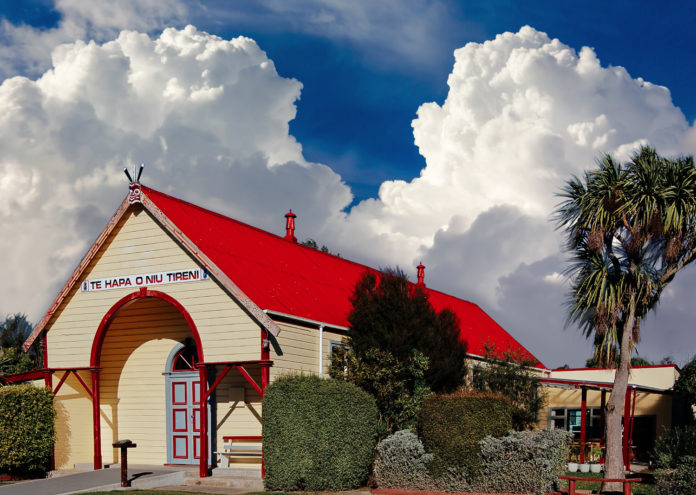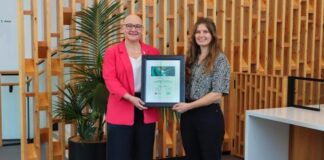A boost in funding for a number of Jobs for Nature initiatives across Canterbury will provide sustainable employment opportunities for more than 70 people, says Conservation Minister, Kiri Allan.
“The six projects are diverse, ranging from establishing coastline trapping in Kaikōura, to setting up a native plant nursery, restoration planting at Lyttelton harbour, and increasing pest control across Banks Peninsula and Christchurch,” the Minister said.
“An investment of over $12.64 million will enable workers to gain valuable hands-on experience and provide a stepping stone into longer-term careers in conservation.
“As well as contributing to the region’s economy post COVID, this work is vitally important in our efforts to reverse damage to our unique environment and meet the goals laid out in the Aotearoa New Zealand Biodiversity Strategy.
“Every one of us has a role in protecting, preserving and restoring our natural heritage, and each of these projects contribute to in their own way, opening up new recreational and educational opportunities across the region.
“It will be exciting to see the lasting impact this work will have for years to come,” she said.
A range of groups are leading the projects including local rūnanga, community groups, and local government.
Summary of projects:
Whakaraupō – He Rau Ringa e Oti ai (the Helping Hands programme)
Led by Te Hapū o Ngāti Wheke has received $4.5 million to employ 20 people over the next three years to restore their ancestral harbour Whakaraupō/Lyttelton.
“This is a fantastic example of a mana whenua led collaborative partnership that is guided by tikanga and kaupapa Māori values,” Minister Allan said.
Two dedicated field teams managed by programme partners Conservation Volunteers NZ and Living Springs Trust will work to restore three main sites through planting and the control of predators, pests and weeds.
“Everyone involved will benefit from the knowledge exchange. The programme partners will pass on their ecological expertise to mana whenua and the field teams while the field teams and programme partners will learn about mātauranga Māori from mana whenua.”
Helping Hands sits within the Whaka Ora Healthy Harbour partnership and Catchment Plan, a multi-partner initiative to restore mahinga kai values to Whakaraupō.
“Ecological and cultural restoration of Whakaraupō as mahinga kai is essential to ensure healthy, abundant, interconnected and sustainable life, waterways and communities,” the Minister said.
Te Rākau Kōhanga
The $2.7 million Te Rākau Kōhanga project will create a plant nursery at Arowhenua Marae (pictured) near Temuka that will employ 15 people and provide training and qualifications in growing natives.
The nursery will grow about 180,000 eco-sourced native plants over three years.
“With numerous restoration projects underway around the country, we know there is a huge demand for well-grown native plants, so this project will equip those employed with qualifications, in-demand skills and a rewarding career path.”
“The nursery will be a sustainable business that will continue once the funding period ends, which means more jobs for people in South Canterbury and strong support for regional environmental projects,” Ms Allan said.
Some of the plants will be used by the $16 million Jobs For Nature projects working to restore the nearby Rangitata River, a braided river which has significant cultural and conservation values.
Te Tau Wairehu o Marokura
The Te Tau Wairehu o Marokura Predator Control Project will employ up to 13 people for three years in an area affected by the international tourism downturn due to COVID-19. It will support whānau to remain in Kaikōura and stay connected to their tūrangawaewae.
Te Rūnanga o Kaikōura will receive $2.1 million to establish and maintain a trapline to protect native birds from predators along 127 kilometres of coastline between the Awatere River in Marlborough and Oaro River in North Canterbury.
The trapline will protect threatened native species including black-fronted terns, wrybills, Caspian terns, South Island pied oystercatchers, banded dotterel and other native wildlife. More intensive trapping networks will be established around native wildlife hotspots.
Te Rūnanga o Kaikōura/Ngāti Kuri is working in partnership on this project with the Kaikōura, Marlborough and Hurunui district councils, Environment Canterbury and the Department of Conservation as the Ngāti Kurī Takiwā Collective.
Te Makuru
This is a training scheme for whānau from five local rūnanga to raise native plants. It will employ six people for 18 months at DOC’s nursery in Motukarara, near Te Waihora/Lake Ellesmere.
Taumutu Rūnanaga will receive $710,000 on behalf of five rūnanga (Wairewa Rūnanga, Onuku Rūnanga, Te Taumutu Rūnanga, Te Hapu o Ngāti Wheke, and Te Rūnanga o Koukourata).
The project aims to give workers hands-on experience that can be shared with whanau and encourage them to run community native plant nurseries for their hāpu.
Te Ara Kākāriki Kaimahi Greenway Project
Te Ara Kākāriki Greenway Canterbury Trust will receive $953,000 to plant a green corridor across Selwyn. This includes the restoration of two large legacy sites in the Te Waihora catchment that will also benefit from predator and weed control.
“The project is expected to employ four people for three years and will lead to more than 50,000 eco-sourced native trees being planted. Seedlings will include beech, totara and matai trees that will one day become pockets of low-lying forest,” Minister Allan said.
Te Ara Kākāriki has been working to restore native biodiversity in Selwyn for 15 years, planting more than 120,000 native seedlings at 104 sites to create a corridor of ‘greendots’, or pockets, of indigenous habitat. These provide habitat and stepping-stones for native birds, lizards and insects. The project is supported by Te Taumutu Rūnanga, Environment Canterbury, and Selwyn District Council.
Ōtautahi and Te Pātaka o Rākaihautū Pest Control
Christchurch City Council will receive $1.575 million for animal pest and weed control work in parks, mahinga kai sites and wetlands across Otautahi/Christchurch, Te Pataka o Rakaihautu/Banks Peninsula and the Port Hills.
The project will employ 10 people for three years. The Council intends to bring unemployed people into the workforce and offer placements for those interested in getting experience and skills in pest control. Training will be provided to set them up for a career in conservation.



